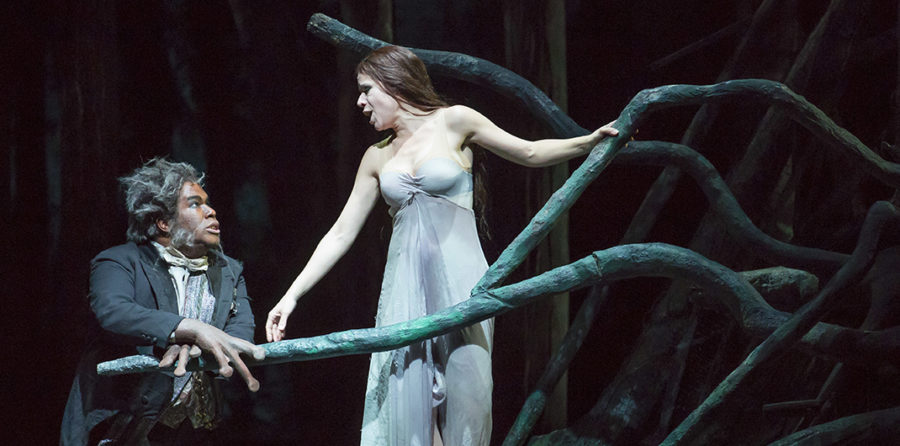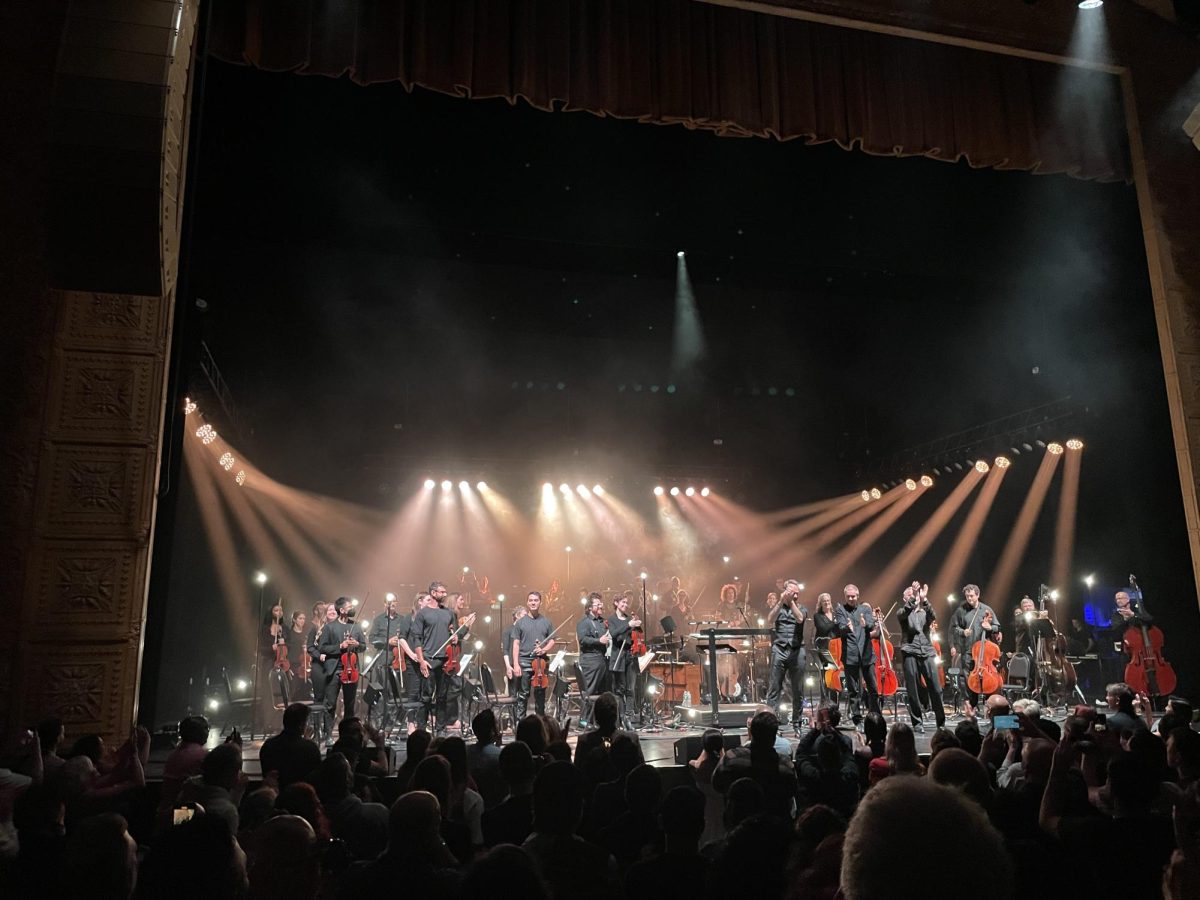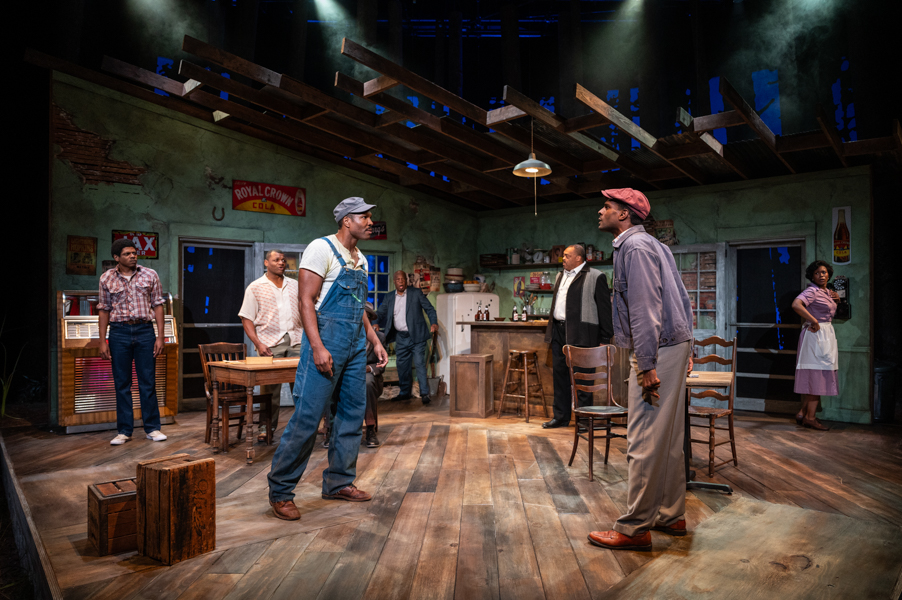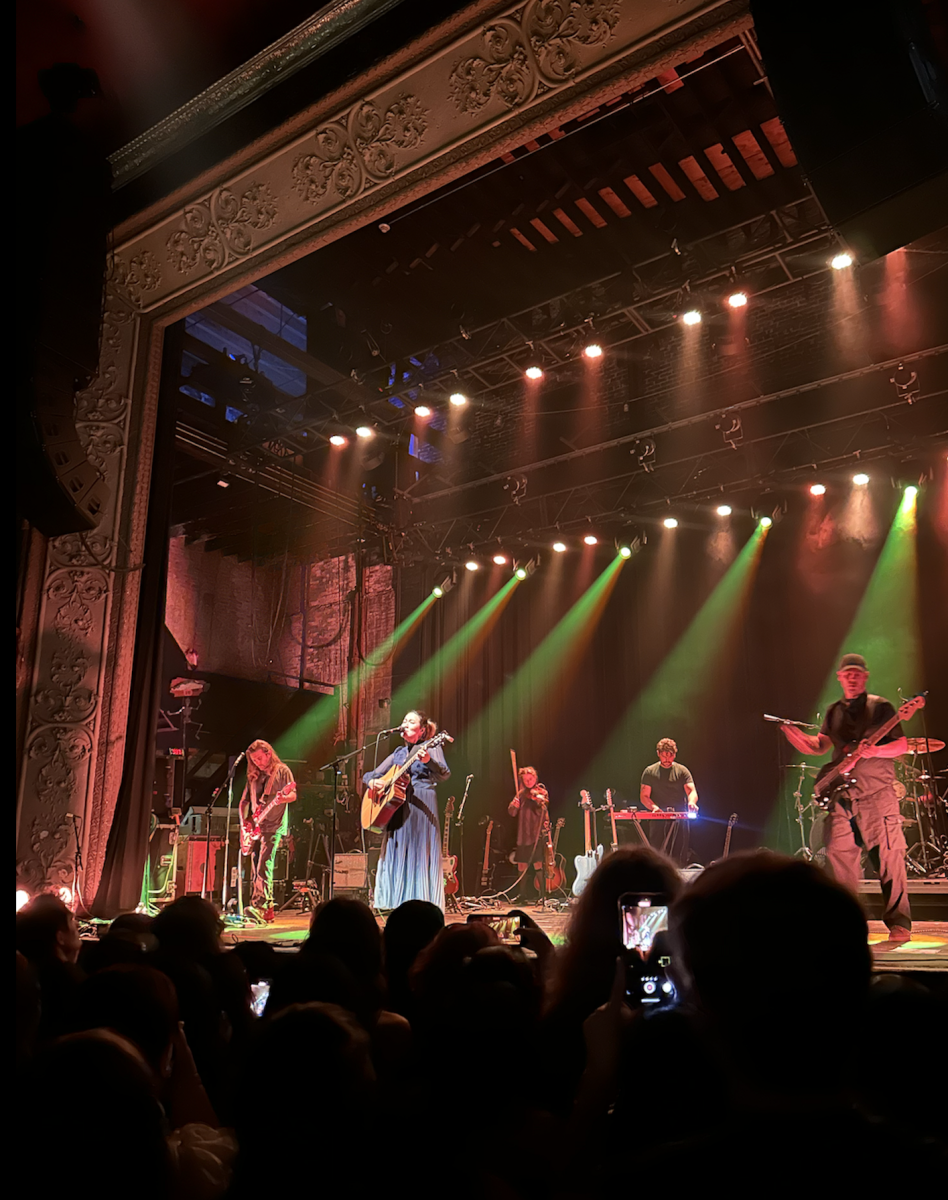Billed as a “fairy tale for adults,” Antonín Dvořák’s Rusalka is a twisted tale of love and betrayal. The Lyric’s new production is a spectacle from start to finish, with visually arresting sets and gorgeous casting. Never mind ninth week—spend an evening with one of opera’s most hidden treasures.
Rusalka happened when a Czech librettist read Hans Christian Andersen’s “The Little Mermaid” with sunglasses on. Dark yet dazzling, the opera follows the story of Rusalka (Ana María Martínez), a water nymph who falls in love with a human prince (Brandon Jovanovich). She longs to become mortal. Her father, the water goblin Vodnik (Eric Owens), warns her against the idea, but refers her to the witch Ježibaba (Jill Grove). Rusalka trades her voice for a mortal body, but the spell comes with consequences. If she fails to win the prince’s love, she will suffer eternal damnation along with her lover.
While hunting in the forest, the Prince discovers a mute Rusalka and brings her back to the royal palace. He soon tires of her and seeks the attentions of a foreign princess (Ekaterina Gubanova). Heartbroken, Rusalka returns to the lake. Ježibaba tells her that she can save herself by killing the prince; however, she refuses and becomes a bludička, an evil water spirit. The prince, maddened with remorse, comes to the lake in search of Rusalka. He repents his earlier infidelity and asks for a kiss, knowing that her kiss means death and damnation. They kiss, and he dies. Sinking into the lake, Rusalka commends his soul to God.
Ana María Martínez returns to the Lyric stage as a sumptuously haunting Rusalka. Her voice is pure fantasy, combining rum-cake richness with a moonlit upper register. She has more than enough sound to go around: At her most inspired, Martínez demolishes Dvořák’s orchestration with rapturous ease. Nor does she skimp on sentiment, serving the immortal “Song to the Moon” with poignancy and a sense of otherworldly grace. Her dark, glossy voice soaring above watercolor strings with ghostly grace is pure fairy-tale magic.
As opera’s greatest wallflower, Rusalka is something of an oddity. By giving up her voice for a chance to be human, she loses the ability to communicate with other characters. A non-singing prima donna role seems counterintuitive, but Martínez makes it work. As Rusalka, her silence is alien in a world of song—she makes the glittering royal court her desert. There’s a desperation in her movement that’s both heart-wrenching and captivating to watch. And there’s innocence, too, like a girl at her high school prom. Martínez combines the two to devastating effect, eliciting sympathy for days.
Brandon Jovanovich delivers a virile, thrilling prince. The man has a voice the size of a small island nation—at maximum output, it easily overpowers everything else on stage. His high notes are explosive, finishing the first act with a bang. Impressively, Jovanovich also nails the prince’s character with just his voice. He sounds incredibly self-absorbed, even when wooing Rusalka; the only thing he’s in love with is his own voice.
Another quirk of Dvořák’s opera is that the main love interest sings mostly by himself; partly because of navel-gazing, and partly because our heroine is magically mute. What passes for a love duet comes at the very end, in which Martínez and Jovanovich display powerful chemistry. The prince, after realizing his betrayal, reconciles with and professes his love for the fallen Rusalka. Instead of the lusty womanizer of two acts previous, we hear a changed man. His sound is breathtakingly tender, tinged with newfound sincerity. Martínez, too, feels transfigured: Her voice is resigned and almost transparent. It’s a beautiful moment, but the honeymoon doesn’t last. Pastoral woodwinds give way to darker strings as Vodnik is heard: “All sacrifices are futile.” There is no happily ever after here.
Dvořák’s Rusalka dishes up pure fantasy. Beautiful and tragic, the Lyric’s production is a feast for the eyes and ears. I walked out of the theater absolutely devastated. Happy endings are for children.
Rusalka runs at the Lyric Opera of Chicago through March 16.








